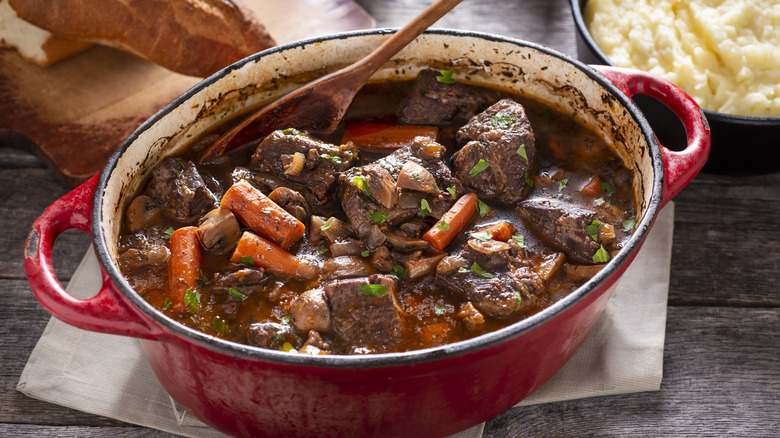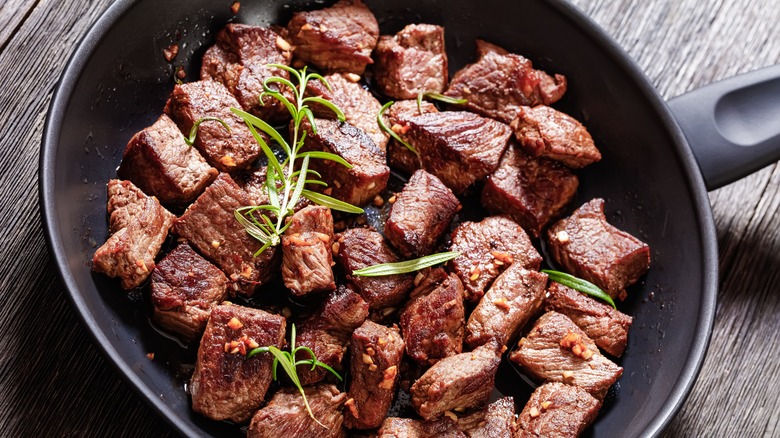Why It's Actually Not A Good Idea To Cook Your Beef Stew All Day
With certain dishes, like a special Italian Sunday sauce or beef stew, it's easy to get the idea that you should let them cook as long as possible. This thought may be backed by the ease of allowing your meal to simmer in the background all day, leaving you free to focus on other things. But sometimes, cooking your food for hours and hours can actually backfire — and this is certainly the case with beef stew. If you let your meat simmer in its own (delicious) juices for too long, it can actually disintegrate, leaving you with a wet, soggy mess of a meal.
There are a few reasons for why this occurs. We want our meat to become tender, of course, which is why we typically want to bring its internal temperature up to at least 160 degrees Fahrenheit. This is when the muscle fibers begin to break down and the beef starts releasing its juices internally. If we expose it to heat for too long, however, much of that precious liquid and fat will cook out, leaving us with tough, dry chunks. Forcing your meat to simmer for an extended period of time causes those fibers to fully collapse, which ruins the structural integrity of the beef.
Find the sweet spot for tender chunks of beef that stay intact
While we don't want to cook our beef to the point of collapse, we do want it to reach the point where the muscle fibers begin to come apart. So what's the sweet spot here? Once you get to the step in your recipe where you let the meat simmer with stock and vegetables over the stove, you'll want to let it cook for about two to three hours at most. For some guidelines to get started, check out our aromatic ginger-garlic beef stew, cinnamon apple cider beef stew, and old-fashioned beef stew recipes — you'll see that they all stick to this timeframe. But before you get there, make sure to brown your beef separately for maximum flavor.
When it comes to simmering, the key is to peek at your meat intermittently. Once it hits the 160-degree zone we mentioned, test a small piece for tenderness, and if you find success, pull your stew off the heat before the meat has a chance to fall apart. Keep in mind that, while you want your beef to cook for a good long time, your veggies don't need the same treatment. To avoid any sogginess here, dump them into the pot around 20 minutes before you're ready to eat.

